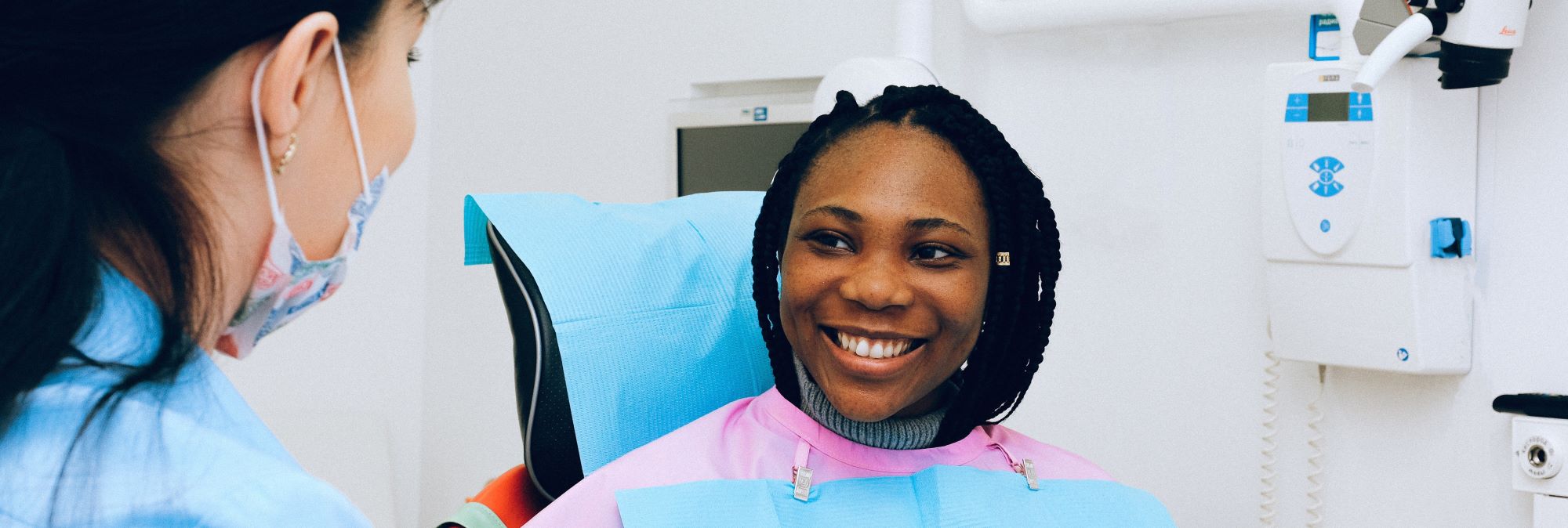
06 May A User’s Guide to Wisdom Teeth Removal
No, contrary to the suggestion of some, your wisdom teeth have absolutely nothing to do with making you wise. (It’s okay—if you thought that as a child, you weren’t alone.) You probably realized that your wisdom teeth are simply another set of molars, the last ones to grow in. Unfortunately, these seemingly insignificant teeth can cause their fair share of trouble.
Today, we’ll take a look into the world of wisdom teeth. We’ll explore when they need to be removed. We’ll also look at a few fun facts, and some tips to consider if you’re having yours removed.
When is it time?
For most people, the earliest their wisdom teeth would even emerge is age 17. The typical age range for these well-known molars to appear is 17-25.
Once your wisdom teeth come in, you still may be among the lucky few who do not need to remove them! If your wisdom teeth have come in just fine and are not trapped in your gums or jawbone, then your dentist may not recommend you have them pulled.
Yet for many more people, the situation is less than ideal. Wisdom teeth often do not have room to grow in properly, resulting in their being partially or fully trapped in the gums or jawbone. They may grow at various angles, just trying to emerge.
How to tell if your wisdom teeth are causing problems
Thomas J. Salinas, D.D.S., notes different problems that are apt to occur with wisdom teeth, including wisdom teeth that:
- “Remain completely hidden within the gums.” In dental terms, this is known as becoming “impacted” within the jaw. If this happens, you may develop a cyst or an infection, damaging your teeth roots or your bone support.
- “Emerge partially through the gums.” When this occurs, the chances of gum disease or oral infection increase drastically. The area of your wisdom teeth is already difficult to see and clean, and partially emerged wisdom teeth only make the problem worse.
- “Crowd nearby teeth.” Your wisdom teeth may not have room to grow in properly, causing an uncomfortable fight for space between the teeth in your mouth, and possibly even damage to the other teeth.
Sometimes, dentists may recommend that you have your wisdom teeth pulled even if they are not yet causing any of these problems, simply to prevent them from happening! This recommendation can also emerge from the belief that having the procedure done at a younger age is better. When you are younger, the roots and bone are not yet fully formed, and your recovery process will be likely faster.
Symptoms of Improperly Growing Wisdom Teeth
Wisdom teeth can be pulled preventatively, but if they’re causing infection, swelling, or other issues, then that’s a pretty sure signal that they need to go. Salinas cites the ADA’s recommendations for what should merit wisdom teeth removal, noting that it, “…may be necessary if you experience changes in the area of those teeth, such as:
- Pain
- Repeated infection of soft tissue behind the lower last tooth
- Fluid-filled sacs (cysts)
- Tumors
- Damage to nearby teeth
- Gum disease
- Extensive tooth decay.”
Talk to your dentist about whether you will need to have your wisdom teeth pulled, if you haven’t already, and if so, when the right time would be for you.
Did you know?
Wisdom teeth aren’t just your regular molars! Consider these lesser-known facts about your third set of molars:
- Not all of the population even has wisdom teeth! Research suggests that around 53% of the population has at least one wisdom tooth. Some never develop them at all!
- Wisdom teeth causing no trouble is much less common than their needing to be removed. According to the NIH, “The American Association of Oral and Maxillofacial Surgeons states that ‘about 85% of third molars will eventually need to be removed.’”
- Have you ever wondered why they’re called wisdom teeth? It’s widely assumed that wisdom teeth received their name from the time that they develop in a person’s mouth—typically the late teens or early twenties, just as they’re stepping out of childhood and into adulthood.
- Eventually, the trouble of having your wisdom teeth removed could be a thing of the past. According to UTHealth Houston, “Research has shown that young children injected with shots of anesthetic for dental care sometimes never grew lower wisdom teeth later, suggesting these shots might make it possible to deliberately stop wisdom teeth from growing.” As third molars often cause more trouble than they’re worth, researchers are working to figure out a way to eliminate the problem altogether.
Tips for Getting Them Pulled
If your wisdom teeth have emerged and you need to have them pulled, you may feel nerves in anticipation of the procedure. This is common, especially if you haven’t had any other significant dental procedures done before. The good news is, you’re not alone. One surgery center reports that, “Every year, there are about 10 million wisdom teeth taken out of five million mouths in the United States, according to the American Public Health Association (APHA).”
To ease your nerves and help the process go smoothly:
Ask all your questions beforehand!
Your dentist or your oral surgeon would be happy to answer any questions you may have about the procedure. Getting answers ahead of time can ease your nerves and give you peace of mind.
Go shopping!
It is arguably the best part of having your wisdom teeth removed that you get to eat ice cream for a week straight. Before you have the procedure done, oral surgery centers recommend that you stock up on soft foods such as ice cream and soup. That’s probably all you’ll be eating for at least the first few days.
Contact your dentist if you have concerns.
After you’ve had your procedure, it may take a little while to recover, and that’s normal. Some discomfort and even bleeding is normal as well. But if you experience any of these signs, it may indicate that something has gone wrong. According to Milltown Dental, signals of trouble include:
- Unbearable pain not reduced by medication
- Trouble swallowing or breathing
- Fever
- Increased swelling
- Bleeding that doesn’t stop
- Numbness
- Blood or pus from the nose
In most cases, though, you should be able to have your wisdom teeth pulled without experiencing these difficulties. The removal of wisdom teeth is a standard operation, and it’s nothing to be concerned about!
If you are wondering whether you need to have your wisdom teeth pulled now, or whether you’ll have to in the future, speak to your dentist about your options. You may be a candidate for a preventative procedure. If you are experiencing discomfort, infection, or any other problems in the area of your wisdom teeth, make sure to let your dentist know about that as well. It may mean that it’s time to go get those wisdom teeth pulled. Summer break is the perfect time to schedule wisdom teeth removal! Call today!
About Our Team
Our team of dental experts has well over 30 years of combined experience in the field of dentistry. To learn more about them, please visit the team pages for Hephzibah, Washington Road, Summerville, and Medical District locations.


Sorry, the comment form is closed at this time.